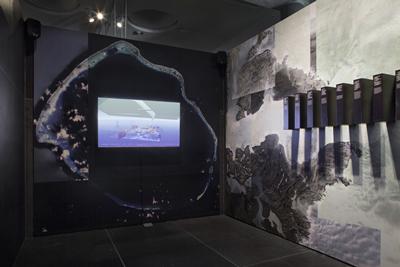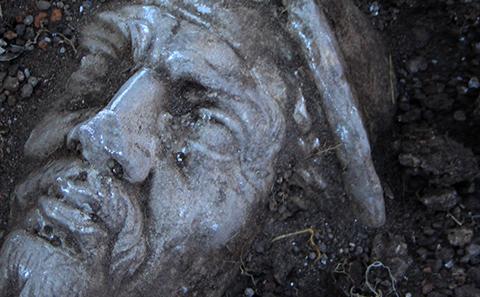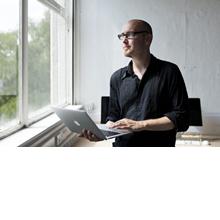Archaeologies of media and technology
Exploring our past, present and future through media and technology
Archaeology is not exclusive to physically digging up artefacts on a site; exploring our past through media and technology can also help us understand past, present, and even future society. Researchers at the University of Southampton are leading in this new and exciting field.
The Archaeologies of Media and Technology (AMT) research group, based at the University’s Winchester School of Art, investigates digital culture through design and art. The team’s research involves asking questions about digital media and technologies – ranging from cinema to military surveillance imaging – looking at both their role in society and their obsolescence.
At AMT we bring together art, science and technology to advise and influence policy and projects within the cultural heritage sector. Our theoretical humanities base constantly interacts with cultural curation, art, digital cultural festivals and other institutions, which makes us internationally unique as a research group.

Just a few of AMT’s research themes include the changing form of the library and laboratory, and the legacies of technology, art and literature from the Cold War. Currently, the research group is also exploring the archaeology of fashion film in a collaboration with Central Saint Martins, part of University of the Arts London, funded by the Arts and Humanities Research Council.
Crossing borders
The team’s work crosses borders as well as disciplines. AMT is a key partner of Transmediale, one of the world’s leading electronic arts festivals, which is based in Berlin. Transmediale has attracted art professionals, artists, students and activists from all over the world for over 30 years.
During the 2017 festival event, AMT created Transmediale’s first book-length academic publication, collecting world-leading media and art theorists, as well as artists and creative pieces, in one book to explore the ‘postdigital culture’. The book also explored the dark side of the internet such as surveillance and various forms of data-enabled manipulation.
“From this year, we are leading the artistic direction of a new media arts festival in China called Digital Suzhou, using the model of our partnership with Transmediale,” says Ryan Bishop, Professor of Global Arts and Politics, and co-director of AMT. “The artistic director of Transmediale, Kristoffer Gansing, was a participant in the first iteration of Digital Suzhou, and we hope to build further the partnerships across both festivals in collaborative and innovative ways.”
AMT is also working with the University of California, San Diego on an exhibition to explore aerial imagery as an art form. The exhibition will explore various technologies of vision, including satellite, synaesthetic constructions that use different senses to create a visual image, drone imagery and computer graphic imagery. It will look at how these various technologies have enabled artists to create different ways of viewing the Earth and consider our impact on the planet, as well as what happens to these technologies when they come to the end of their useful lives. This work challenges our understanding by reminding us that media technologies are not necessarily restricted to everyday entertainment uses, but are an essential part of techno-scientific governance and large geopolitical and environmental surveillance.
At AMT we use art to make complex issues about the role of media and technology in society accessible to a wider audience and look at what made the world how it is today. But we are also interested in unmaking this world and offering experimental, speculative perspectives on current issues. By developing partnerships and collaborations, both in the UK and internationally, we will continue to engage and inspire audiences across the globe.
Related Staff Member
Related Staff Member
For more information:
The Archaeologies of Media and Technology (AMT) research group

Finding solutions for silver shoppers
Improving the retail environment for older people in the UK and China.

Making the past a virtual realit
Using cutting-edge technology to bring ancient civilisations to life.
.jpg_SIA_JPG_fit_to_width_SQUARE.jpg)
